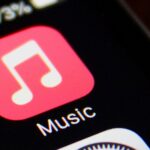As we approach the date when clubs open again, it raises the question about how comfortable will people feel on a dancefloor?
Most parts of the world have not had a nightlife scene for a full 12 months, and some people may now feel anxious about large groups, especially in areas that could be a hot spot for transmission of the COVID virus.
With no windows for ventilation and close proximity to others, clubs are one of the places considered high risk, which is why they are one of the last businesses allowed to open after Lockdown.
Some entertainment industries such as theatres are reported to have sometimes struggled to sell out ticketed events scheduled after their expected reopening date, which could be an indicator that many people don’t yet feel comfortable gathering in large numbers.
Industries such as theatres do often attract on average an older age group than nightclubs, and this same hesitation may not be felt by younger generations in their 20s and below.
Many leading music events such as Parklife and Creamfields sold out their thousands of tickets in a matter of hours, and this high demand for tickets has been echoed across the whole of the electronic music industry. Indoor events such as the reopening weekend of clubs like Fabric have also sold out in short time periods.
Nick Morgan is the CEO of We Are The Fair, which is an independent event-production company. He is also an adviser for the government inquiry into the future of festivals. Talking to the Guardian he said: “After the flu pandemic of 1918, things like concert halls and theatres saw more growth than at any other time in British history,” He continued to say, “People thought the need to be distanced would remain, but it didn’t. If anything, society went the other way.” He says that “pent-up demand” has become an overused phrase, “but if sales are anything to go by, it’s accurate”.
In June, when entertainment opens up again, Nick Morgan doesn’t expect all entertainment industries to bounce back so quickly, saying: “I think family shows, theatres and gigs featuring older, more legendary artists are still struggling to sell tickets because their audiences are nervous. Some people haven’t been out of their neighbourhood for a year.”
There are some concerns over whether people will stick to health and safety rules in clubs and festivals, which could potentially put some people off.
Some argue that the desire to avoid social distancing is perhaps a reflection of a more realistic truth about human psychology. In crowds, people often normalise each other’s bad behaviours, which means sticking to rules on mass is highly unlikely. “Normalisation of deviance” is a term widely attributed to the sociologist Diane Vaughan, who used it in reference to the deviant behaviours sometimes being engaged in the corporate world. Often people see someone else getting away with something they shouldn’t be doing, and then decide themselves that it’s to do the same thing.
Collin Siemer is a therapist and gave a statement to The Guardian saying: “If someone has bought a ticket to an event, presumably they really want to be there and they are going to be excited by the crowds and bustle. That excitement will certainly impact their behaviour: they might easily forget the rules they’d been avidly following up until then.”
Looking at the flip side of human nature, Collin Siemer also feels the desire to exercise some form of control will be hard to shake, saying, “Every day we’re being faced with an omnipresent but intangible threat. We know that the virus is there, but we can’t see it, hear it or touch it. That triggers an impulse in many of us: we want to try to control our surroundings and our circumstances to compensate.”
No doubt the answer to this question will come down to each individual’s own feelings about COVID, and how much risk they feel the virus poses to their long-term health. Vaccine programs and other health and safety measures will be implemented before events can legally go ahead, but it’s understandable if some remain anxious about COVID, especially if they have an underlying health condition.
H/T: The Guardian




